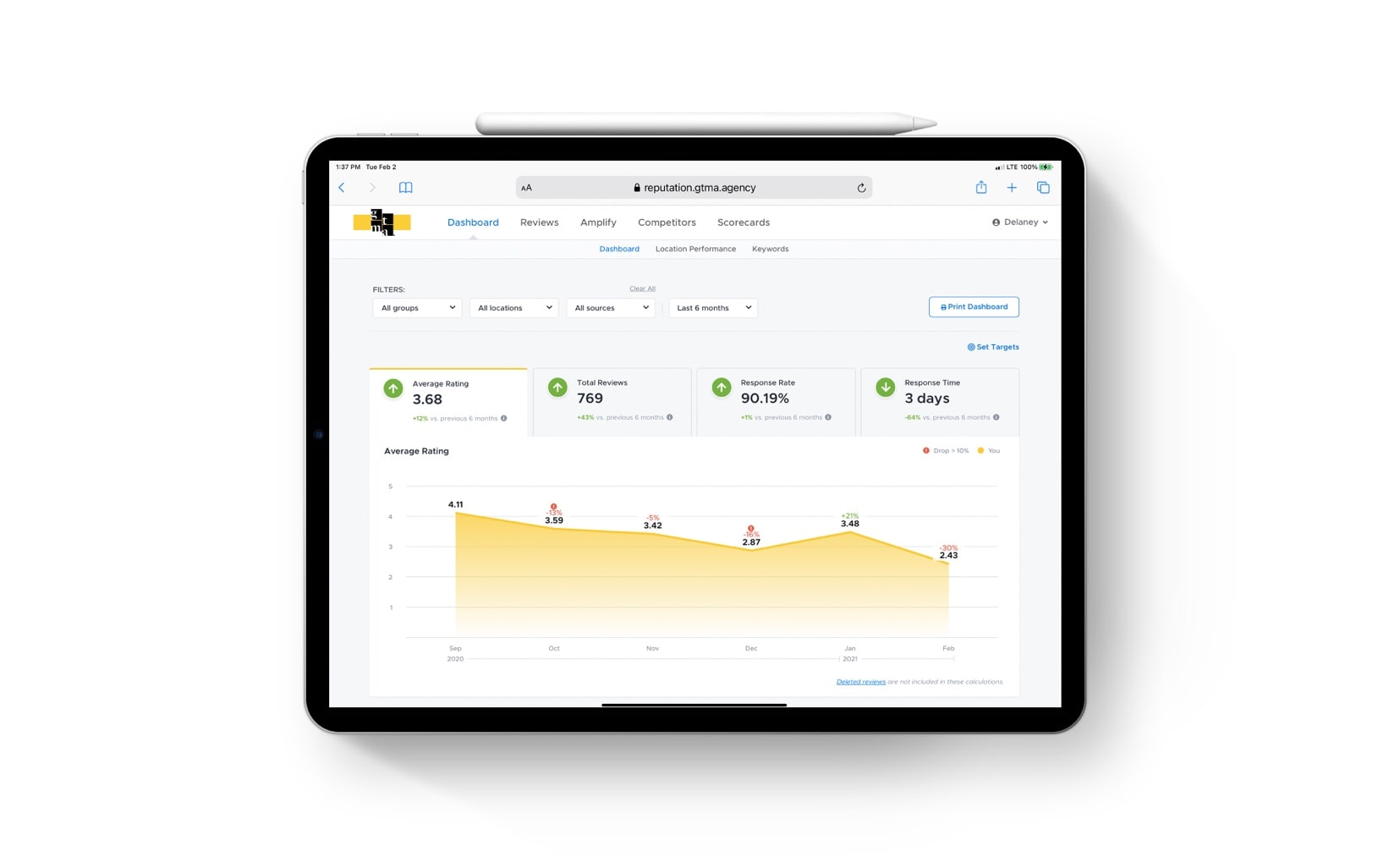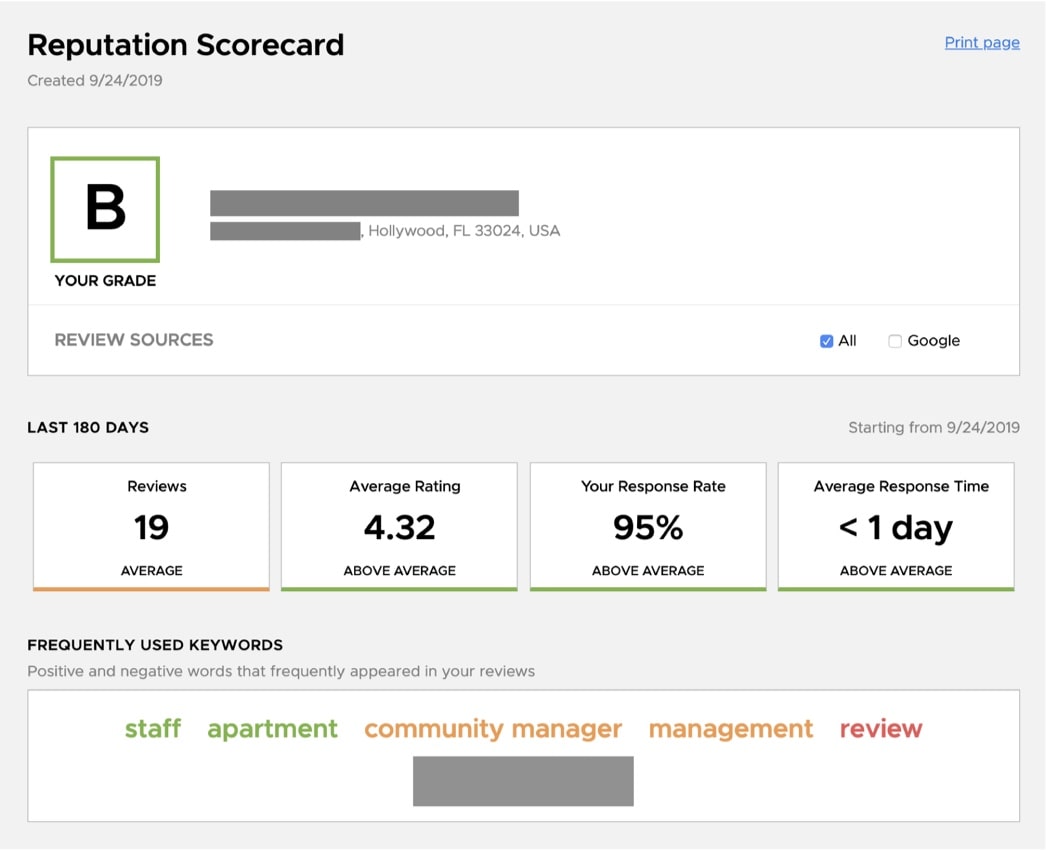
The Importance of Reputation Management
Did you know that 85% of people trust online reviews as much as they do a personal recommendation? This means your online reputation must be top-notch to stand out from your competitors. So what is reputation management and why is it important for your brand or business?
Reputation management is the ongoing process of monitoring your brand or business’s public perception. The stronger your online perception is, the more likely customers are to trust you and therefore, give you their business. The end goal is to maintain a positive online presence while addressing problems that may arise.
Benefits of Managing Your Online Reputation:
- Competitive advantage. Having a strong online reputation differentiates you from your competitors.
- Higher traffic. A strong online presence influences prospective customers to give you their business.
- Builds trust and loyalty. A good online reputation encourages a positive perception, building trust and loyalty between the customer and the brand or business.
- Real-time insights from customer feedback. Brands and businesses are able to take feedback and implement it immediately.
- Improved customer experience. Responding to feedback nurtures a relationship between the customer and the brand or business.

Monitoring Your Online Presence
Today more than ever, people look to ratings and reviews before deciding where and what to give their business. This applies to restaurants, salons, clothing brands, products, multi-family housing, and more. Prospective customers look to the feedback, opinions, and reviews of preexisting customers, hence why it’s so important to monitor your online presence. Reputation management gives you the opportunity to immediately address concerning comments, find a resolution or at least reduce the risk level. It also enables you to engage with positive comments and feedback.
CURIOUS ABOUT YOUR ONLINE REPUTATION STATUS?
View a reputation score for your business using our quick and easy scorecard generator tool.

Handling Negative Reviews
Receiving a negative review is never a good feeling but it is an opportunity to publicly display how you handle complaints, issues, and criticism. How you react to a 1-star review is a way of righting a wrong and putting your customer service skills on full display. In your response, it’s important to show your customers that you care about them just as much as the issues they mention. In an effort to avoid any back-and-forth on a public platform, respond publicly initially before encouraging the reviewer to work with the customer service team offline. Negative reviews can also be helpful when it comes to identifying issues that your brand or business can work towards improving. No matter the severity of a negative review, not responding to or addressing the review can leave an even larger impact.

WANT TO TAKE OUR REPUTATION MARKETING SERVICES FOR A TEST RUN?
Best Practices When it Comes to Managing Online Reputation
- Highlight positive reviews on your social media platforms and website to show that you value your customer’s feedback.
- Respond to reviews in a timely manner. Overall response time is combined with the average star rating, ultimately impacting SEO authority. A responsive business or brand is more trustworthy than one with a perfect rating.
- Respond to all positive reviews by expressing appreciation for their business.
- Take any feedback mentioned in reviews and implement it into your business or brand.
- Take ownership when it comes to negative reviews and work with the reviewer to find a resolution. Remember, the customer is always right.
Are you feeling inspired to take charge of your online reputation? Learn more about GTMA’s custom-built reputation dashboard, white-glove reputation services where you’re working one-on-one with a reputation specialist, or other GTMA services by submitting a contact form below!